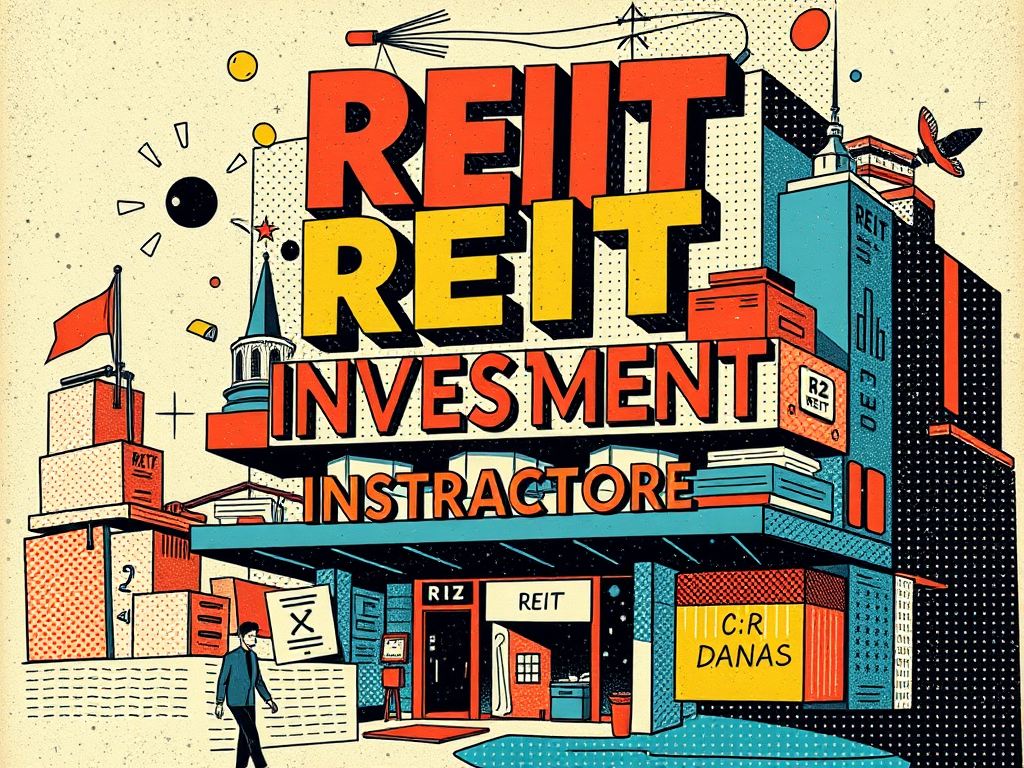
Case Study: How a Well-Timed Sale in Athens Achieved a Record Profit
Reading time: 12 minutes
Table of Contents
- Introduction
- Background: The Athens Real Estate Market
- The Property in Question
- Market Analysis and Timing
- The Sale Process
- Results and Analysis
- Lessons Learned
- Implications for the Broader Greek Real Estate Market
- Conclusion
- FAQs
Introduction
In the ever-evolving landscape of real estate investment, timing is often considered the key to maximizing returns. This case study delves into a remarkable success story from Athens, Greece, where a savvy investor managed to achieve a record-breaking profit through a well-timed property sale. By examining the various factors that contributed to this achievement, we aim to provide valuable insights for investors, real estate professionals, and market analysts alike.
Background: The Athens Real Estate Market
Athens, the capital city of Greece, has experienced a tumultuous economic journey over the past decade. Following the severe economic crisis that began in 2009, the real estate market in Athens suffered a significant downturn, with property values plummeting and investor confidence at an all-time low. However, in recent years, the market has shown signs of recovery, driven by a combination of factors including economic stabilization, increased foreign investment, and a growing tourism sector.
Key Market Indicators
To understand the context of our case study, it’s crucial to examine some key market indicators that have shaped the Athens real estate landscape:
- Property Prices: After reaching a bottom in 2017, property prices in Athens have been on an upward trajectory, with certain neighborhoods experiencing double-digit growth rates.
- Foreign Investment: The introduction of the Golden Visa program in 2013 has attracted significant foreign investment, particularly from Chinese, Russian, and Middle Eastern buyers.
- Tourism Impact: The booming tourism industry has led to increased demand for short-term rentals, driving up property values in popular tourist areas.
- Urban Regeneration: Several urban renewal projects have been initiated, improving infrastructure and attracting both local and international interest in previously overlooked areas.
The Property in Question
Our case study focuses on a property located in the upscale neighborhood of Kolonaki, in central Athens. The property in question was a 150 square meter (1,615 square feet) apartment situated on the third floor of a well-maintained 1960s building. Key features of the property included:
- Three bedrooms and two bathrooms
- A spacious living room with a balcony offering views of Lycabettus Hill
- Recently renovated kitchen and bathrooms
- Hardwood floors throughout
- A dedicated parking space (a rarity in central Athens)
The investor, whom we’ll refer to as Mr. Papadopoulos, purchased the property in early 2015 for €320,000 ($380,000 at the time), recognizing the potential for appreciation as the market showed early signs of recovery.
Market Analysis and Timing
Mr. Papadopoulos’s success can be attributed to his meticulous market analysis and impeccable timing. Let’s examine the key factors that influenced his decision-making process:
Economic Indicators
By 2019, several economic indicators pointed towards a strengthening real estate market in Athens:
- GDP Growth: Greece’s economy had returned to growth, with GDP expanding by 1.9% in 2018 and projections for continued growth in the coming years.
- Unemployment Rate: While still high by European standards, unemployment had fallen from its peak of 27.5% in 2013 to 18.5% in 2018, indicating improved economic conditions.
- Consumer Confidence: The consumer confidence index had shown steady improvement, reaching levels not seen since before the economic crisis.
Real Estate Market Trends
Specific to the real estate market, Mr. Papadopoulos observed the following trends:
- Price Appreciation: Property prices in prime Athens locations had increased by an average of 7.5% year-over-year in 2018, with some areas seeing even higher growth rates.
- Demand Surge: There was a notable increase in demand for high-end properties in central Athens, driven by both domestic and international buyers.
- Rental Yields: Short-term rental yields in popular tourist areas had reached impressive levels, often exceeding 7% annually.
Neighborhood Dynamics
Kolonaki, where the property was located, had experienced particularly strong growth due to its desirable location and upscale reputation. The neighborhood had seen:
- An influx of high-end retail stores and restaurants
- Increased interest from foreign buyers looking for prime real estate
- Improved infrastructure, including the renovation of nearby public spaces
The Sale Process
Recognizing that market conditions were highly favorable, Mr. Papadopoulos decided to list the property for sale in April 2019. His approach to the sale process was characterized by the following strategies:
Pricing Strategy
Based on recent comparable sales in the area and the property’s unique features, Mr. Papadopoulos set an initial asking price of €750,000 ($840,000). This price point was deliberately set slightly above market value to allow room for negotiation while still reflecting the property’s premium status.
Marketing Approach
To maximize exposure and attract potential buyers, Mr. Papadopoulos employed a multi-faceted marketing strategy:
- High-quality professional photography and virtual tours
- Listings on both local and international real estate portals
- Targeted social media advertising to reach potential foreign investors
- Collaboration with luxury real estate agencies specializing in high-end properties
Negotiation Process
Within two weeks of listing, the property had garnered significant interest, with multiple offers received. Mr. Papadopoulos skillfully managed the negotiation process, leveraging the competitive interest to drive up the final sale price. After a series of counter-offers, a final sale price of €780,000 ($873,600) was agreed upon with a foreign buyer looking for a pied-à-terre in Athens.
Results and Analysis
The sale of the Kolonaki apartment yielded remarkable results:
- Sale Price: €780,000 ($873,600)
- Original Purchase Price: €320,000 ($380,000)
- Gross Profit: €460,000 ($493,600)
- Holding Period: 4 years and 3 months
- Annualized Return: Approximately 24.5% (not accounting for taxes and other expenses)
This exceptional return on investment can be attributed to several factors:
- Market Timing: Mr. Papadopoulos capitalized on the market’s recovery, buying at a low point and selling as prices peaked.
- Property Selection: The apartment’s prime location and desirable features made it particularly attractive to high-end buyers.
- Value-Add Improvements: Strategic renovations to the kitchen and bathrooms increased the property’s appeal and value.
- Effective Marketing: The comprehensive marketing strategy ensured maximum exposure to potential buyers.
- Negotiation Skills: By creating a competitive bidding environment, Mr. Papadopoulos was able to secure a sale price above the initial asking price.
Lessons Learned
This case study offers several valuable lessons for real estate investors:
1. Market Research is Crucial
Mr. Papadopoulos’s success was largely due to his thorough understanding of market trends and economic indicators. Investors should continuously monitor both macro and micro-level data to inform their decision-making.
2. Location Remains Paramount
The property’s location in the desirable Kolonaki neighborhood was a key factor in its appreciation. Prime locations in major cities often offer the best potential for long-term value growth.
3. Timing is Everything
Buying during a market downturn and selling as it peaks can lead to extraordinary returns. However, this requires patience, market knowledge, and a willingness to act decisively when opportunities arise.
4. Value-Add Strategies Enhance Returns
Strategic improvements to the property, such as the kitchen and bathroom renovations, can significantly increase its value and attractiveness to potential buyers.
5. Effective Marketing Drives Results
A comprehensive marketing strategy that targets both local and international buyers can create competition and drive up the final sale price.
Implications for the Broader Greek Real Estate Market
While this case study represents an exceptional outcome, it also provides insights into the broader Greek real estate market:
Recovery and Growth Potential
The significant appreciation seen in this property suggests that the Greek real estate market, particularly in prime locations, has strong recovery and growth potential. This could attract further investment from both domestic and international buyers.
International Appeal
The sale to a foreign buyer underscores the growing international appeal of Greek real estate, particularly in Athens. This trend is likely to continue, supported by factors such as the Golden Visa program and Greece’s enduring appeal as a tourist destination.
Market Segmentation
The success of this high-end property sale indicates a robust market for luxury real estate in Athens. However, it’s important to note that this segment may behave differently from the broader market, and investors should be cautious about extrapolating these results to all property types and locations.
Potential for Further Appreciation
If economic conditions in Greece continue to improve, there may be room for further appreciation in property values, especially in prime locations. However, investors should remain vigilant and consider potential risks, such as changes in economic policies or global economic downturns.
It’s worth noting that while Athens has seen significant growth, other areas of Greece may offer different investment opportunities. For example, those interested in coastal properties might consider exploring property in Peloponnese, which offers a unique blend of historical significance and natural beauty.
Conclusion
The case of Mr. Papadopoulos and his record-breaking property sale in Athens serves as a compelling example of the potential rewards of well-timed and strategically executed real estate investments. By combining thorough market analysis, strategic property selection, and effective sales techniques, it’s possible to achieve exceptional returns even in markets that have experienced significant volatility.
However, it’s crucial to remember that this case study represents a best-case scenario, and such dramatic returns are not typical. Successful real estate investment requires careful research, patience, and a willingness to adapt to changing market conditions. As the Greek real estate market continues to evolve, investors who can apply these lessons and maintain a long-term perspective may find significant opportunities for growth and profitability.
FAQs
1. Is now a good time to invest in Athens real estate?
While the market has shown strong growth in recent years, the decision to invest should be based on thorough research and individual financial goals. Current economic indicators suggest continued potential for appreciation, but investors should carefully consider factors such as location, property type, and potential risks.
2. How does the Golden Visa program affect the Greek real estate market?
The Golden Visa program has significantly increased foreign investment in Greek real estate, particularly in urban areas like Athens. It has contributed to price appreciation in certain market segments and locations, but its long-term impact on the broader market is still evolving.
3. What are the key factors to consider when investing in Greek real estate?
Important factors include location, property condition, potential for appreciation, rental yield (if applicable), local market trends, and broader economic indicators. It’s also crucial to understand Greek property laws and tax implications for foreign investors.
4. How does the short-term rental market impact property values in Athens?
The growth of platforms like Airbnb has increased demand for properties in tourist-friendly areas, potentially driving up prices and rental yields. However, regulations around short-term rentals are evolving, and investors should stay informed about any changes that could impact this market segment.
5. Are there any risks to consider when investing in Greek real estate?
While the market has shown improvement, potential risks include economic instability, changes in government policies, fluctuations in tourism trends, and global economic factors. Additionally, property-specific risks such as title issues or unexpected renovation costs should be carefully evaluated before investing.

Article reviewed by Ariana Smit, Investment Portfolio Manager | Real Estate & Private Equity Expert | Driving High-Yield Investments, on March 20, 2025






